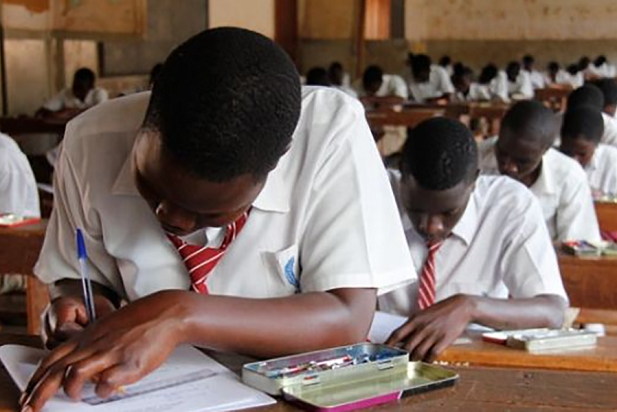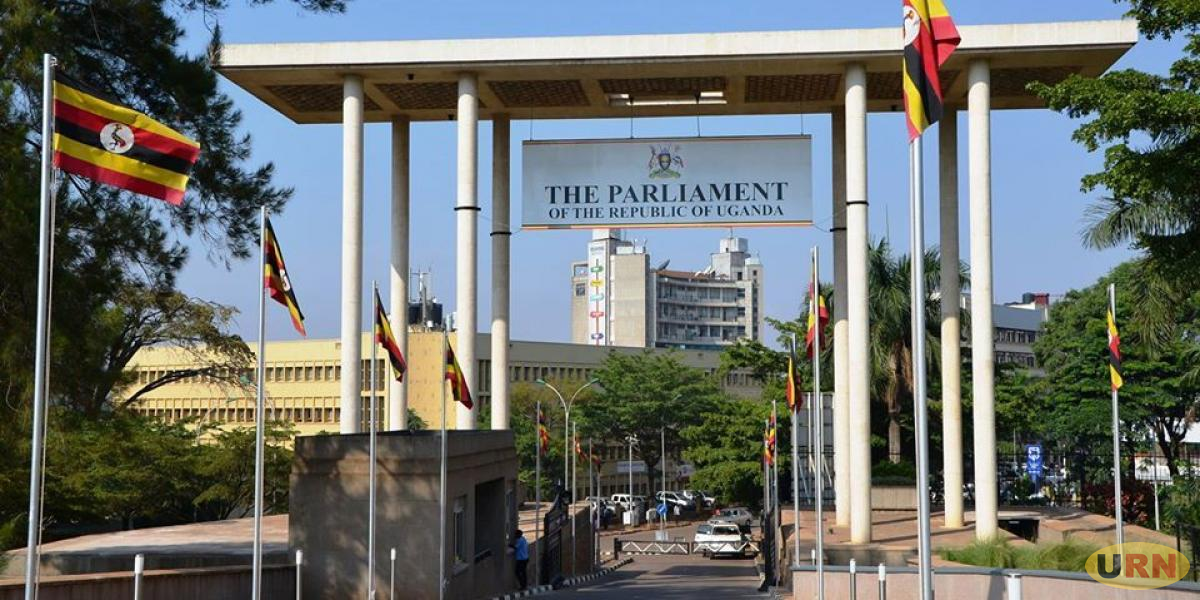As Senior Four candidates undertook their ICT practical exams on Tuesday, significant challenges in delivering the subject became evident. Reports from various schools indicated that headteachers were in a scramble to hire and borrow essential equipment, including computers and printers, to ensure their candidates could sit for the exams comfortably.
However, despite these efforts, many schools were still unable to secure enough devices to match the number of candidates taking the subject, forcing them to conduct the exams in shifts due to the shortage of computers. At Comboni College in Lira City, for example, our reporter found that fewer than 20 computers had been set up for 33 candidates. John Charles Bua, the school’s headteacher, confirmed that the candidates had to be split into two shifts.
At Lira Town College, headteacher Joseph Okello highlighted that due to a shortage of computers, the ICT exams would be conducted in three shifts. The school has 89 candidates but only 30 functional computers.
A similar situation was observed at Lango College, where 38 students are sitting for the exam, but the school has just 20 computers. John Olila, the deputy headteacher, expressed optimism that despite the shortage, they would manage by utilizing the available time to complete the exams.
At Nadunget Secondary School in Moroto district, only 14 out of 85 candidates registered for the ICT exam. The school’s headteacher, Albert Machecho, explained that the school could not accommodate more students for the subject.
“We only have 10 laptops available for teaching ICT. For the exam, we had to borrow an additional 10 computers from Rupa Seed Secondary School to ensure our students could sit for the exam,” Machecho said.
In addition to the shortage of equipment, schools are also struggling with power supply issues. Many are not connected to the national grid and lack alternative energy sources like solar power. Even those that are connected often face frequent outages, particularly in rural areas, making it challenging to conduct the exams without disruptions.
Nicholas Kashumba, headteacher of Lake Bunyonyi Secondary School, located on Bwama Island in the middle of Lake Bunyonyi, Kitumba Sub-county, Kabale District, revealed that only six out of the school’s 46 candidates this year were pursuing the ICT subject. Due to the current rainy and humid weather, the school had to hire a generator to ensure the computer practical exams proceeded without interruption, as the solar power system, their only energy source, was unreliable.
Kashumba noted that this created additional expenses for the school, which had to cross the lake to hire a generator and purchase fuel from Kabale town. Other schools in the Kigezi region, including Rukore Secondary School in Ryakarimira Town Council, Kabale District, and St. Paul’s Kazindiro Vocational Senior Secondary School in Bugangari Sub-county, Rukungiri District, reported facing similar challenges.
Jennifer Kalule, spokesperson for UNEB, noted that in light of the challenges schools face, the board decided to dedicate an entire day to ICT exams. This decision was made to ensure that even schools conducting four or five shifts could accommodate their students and allow them to sit for the examination.
As schools struggle to secure equipment and reliable power on examination day, the question arises: how are students managing to study the practical aspects of the subject under such conditions? During visits to various schools, students and teachers highlighted the significant challenges they face.
In many cases, students share the limited number of available computers, while others must travel distances to access practical lessons. Some schools have equipment lying idle due to a lack of power or missing components, further complicating the situation.
For instance, our reporter visited Rupa Seed Secondary School in Moroto District, where the school owns over 28 computers. However, these computers were found lying idle, as the school has no form of electricity supply to facilitate their use.
Despite these challenges, some students with a passion for ICT insisted on pursuing the subject. They have been studying theory at the school, but for practical sessions, they have been walking 18 kilometers to access a study center.
On other occasions, they make the trek to nearby Moroto High School, which is also 18 kilometers away. Robert Loduk, a student at Rupa Seed Secondary School, explained that the school has a solar system meant to power the equipment, but it is only used for lighting—and even that light is dim.
“We have never used the computers since the lab was set up due to the lack of power. We only study theory and then walk about 36 kilometers round trip for computer practical lessons,” he said.
Hellen Angella, another student, added that the journey poses risks due to insecurity in the area, making the long walk to the study center and back to the school particularly challenging. “The burden of trekking long distances for computer practical lessons is becoming unbearable, and many students who would like to study ICT are giving up due to this exhausting trek,” she noted.
Daniel Bazira, the headteacher of Rupa Seed Secondary School, acknowledged the ongoing crisis. In an interview before the examinations, he mentioned that the school would be acquiring a generator to facilitate the UCE exams during the computer practical sessions.
Achilles Magala, headteacher at St. Paul Kyanukuzi Secondary School in Lwengo District, noted that due to a lack of sufficient equipment, ICT practicals are often conducted using a projector, with the teacher demonstrating concepts to the larger class.
“To provide hands-on experience, students sometimes take shifts, particularly over the weekends when there is more time available. However, we have six classes, and all need practical time, so it can be challenging to accommodate everyone,” he said.
Magala emphasized that if students across the country are to have a genuine opportunity to study ICT, the government needs to address the issues of equipment and power supply. Joseph Musaazi, a teacher in Masaka District, echoed these concerns, noting that the lack of equipment and reliable power has discouraged many students from taking ICT at the O-Level. This is reflected in the number of registered candidates for the subject in many schools.
Musaazi also pointed out that the situation becomes even more complicated at the UACE level, where students are required to choose between Sub Math and ICT. “Nearly every learner would like to take ICT; they are excited about it, but the current situation doesn’t support their dreams,” Musaazi remarked.
Drawing from personal experience, he shared that during his own schooling, he was passionate about ICT but studied from Senior One to Two without ever touching a computer due to its limited availability, with only a few students gaining access. Out of frustration, he ultimately decided to drop the subject. Due to a lack of equipment and related factors, many schools end up not teaching ICT at all.
For instance, Nadiket Minor Seminary Secondary School failed to register any candidates for ICT because of insufficient computers. The situation was similar at Moroto Parents Secondary School in Moroto Municipality. Edward Okwir, the Deputy Headteacher at Moroto Parents Secondary, noted that the entire school relies on just one laptop for all its activities.
“Except for some teachers who have their personal laptops, we don’t have any other computers. The school only has a laptop for administrative purposes,” Okwir said.
He explained that they were unable to register any students for the ICT paper because the school was financially constrained in acquiring the necessary equipment. Okwir emphasized that the ICT syllabus is crucial for equipping learners with basic computer skills, but their efforts are hindered by a lack of resources. He added that the absence of computer lessons is one of their greatest challenges and urged the government to address this issue so that students can be on par with their peers across the country.
Over the years, there have been various government efforts to promote ICT as a subject in schools and to encourage the use of ICT in education more broadly. Several projects funded by development partners aimed to supply computers and related equipment to numerous schools. However, much of this equipment has remained idle for years due to a lack of power, and in some cases, equipment has been stolen.
Recently, the Ministry of Education has renewed its focus on ICT as a critical skill needed for learners in the 21st century by developing a digital agenda. Available information indicates that the Ministry will require approximately 1.3 trillion Shillings over the next seven years to implement this digital agenda strategy, with an estimated annual expenditure of 187.214 billion Shillings to achieve the initiative’s objectives.
Of the annual budget, 1.19 billion Shillings is earmarked for the production and access to localized digital content, curriculum development, e-learning, and training teachers in technology-mediated teaching methods. Additionally, 185.9 billion Shillings will be invested each year to enhance access to equipment, digital services, and connectivity infrastructure.
-URN





